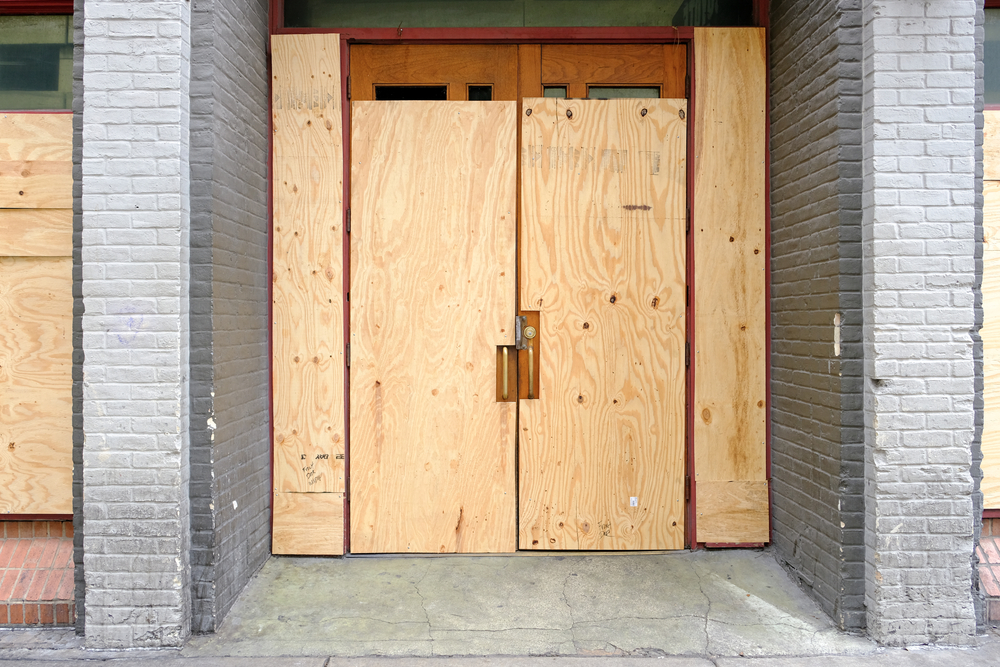How Does Your Commercial Property Insurance Handle Hurricanes?

After a hurricane, the worst time to figure out how well your commercial building’s insurance policy stands up against hurricane damage. Is your commercial property at an elevated risk based on your location? Without a moment’s hesitation, you knew the answer to that question if you lived in coastal Florida. But the Sunshine State is hardly the only state literally in the eye of the storm.
Wind and rising water damage resulting from a hurricane strike are not standard for most commercial property insurance policies. But you can find hurricane insurance riders to cover businesses in specific locations.
Learn where hurricane damage is likeliest to occur and what you can do to minimize the risk to your business and everything of value in your commercial property.
The Top 10 Hurricane States
It will come as a surprise to precisely no one that Florida takes the top spot for hurricane strikes. Here are the ten states where your business and your buildings are at the most significant risk of sustaining hurricane damage, in descending order:
- Florida
- Texas
- Louisiana
- North Carolina
- South Carolina
- Alabama
- Georgia
- Mississippi
- New York
- Virginia
If your business or commercial building is located in any of these states, hurricane coverage is essential. But, unfortunately, you might not have the coverage you need, even if you assume that you do.
Are Your Hurricane Damages Covered?
Your commercial property insurance protects against fire, lightning strikes, wind damage, theft, and vandalism. So you would naturally assume that you could also turn in a claim for hurricane damage, right?
After all, that destruction is just wind and water damage. You’re covered for strong winds, and if a pipe bursts and floods your property, you’ll be reimbursed for the water damage. So why should hurricanes be treated any differently?
The truth is, almost no insurance underwriters will offer a business or commercial client coverage against hurricanes as part of a standard policy. You’re also probably left similarly exposed to damages due to earthquakes and floods.
But don’t worry. If the location of your business puts it at risk of any of these natural disasters, you can buy riders to cover any threat. That includes hurricane protection. A rider, sometimes also known as a clause or an endorsement, is an add-on to an existing policy to cover an area of exposure not mentioned in the standard policy.
You can also purchase a business interruption rider. Think of how long your business would be down if a hurricane flattened the building. Consider, for instance, that yours is a retail operation with significant inventory levels, and all of it was lost to rising water damage from a hurricane. You’re out of business, but your insurance claim for business interruption can keep your company going.
You Need Hurricane Coverage Even if You Don’t Own the Building

If you rent space in a commercial building, hurricane damage won’t affect your roof, electrical, plumbing, or HVAC systems. The damage might disrupt your business, but your landlord’s insurance company should cover needed repairs to the physical layout of the building.
But you’ll still have to worry about the effect of high winds and rising water on your equipment, office automation, inventory, supplies, or whatever of yours the building houses. That’s why you need a hurricane insurance rider even if you don’t own the space.
Even if you operate your business out of your home, you should ask your agent about the benefits of carrying a commercial property insurance policy. Of course, ask about the benefits of obtaining a hurricane rider, too.
Actual Cost Value or Replacement Cost Value?
One critical decision you’ll make as you price your insurance and your hurricane rider has to do with how you’ll be compensated for your lost or damaged property. Here’s the difference between the two main types of coverage.
Actual cost value. This method of calculating what your insurer will pay you for your claim considers the current value of the items lost. For instance, if your destroyed copier is eight years old, you’d be paid what you’d get today for an eight-year-old copier.
Replacement cost value. If that eight-year-old copier is destroyed due to hurricane damage, you’re probably not going to find a used copier of the same age to replace it. Under replacement cost value, your insurer would pay you what it would cost to buy a new copier of the same make and model as the one you lost.
As you can imagine, a replacement cost value policy costs more than an actual cost value policy. That makes sense since your insurer will pay you more for a replacement cost value claim. It might well be worth the additional investment when you think of all of the out-of-pocket costs you’d have to come up with to pay the difference between what you’d receive for actual cost value coverage and what you’d have to pay to buy new equipment.
In addition to actual or replacement cost value coverage, you can choose cheaper coverage to protect only certain aspects of your business. The downside, of course, is that it will leave you exposed to loss in areas of your operation not covered by your policy. But, again, this should be a part of the discussion with your insurance agent.
Call Your Insure One Agent Today
When are commercial property insurance and hurricane coverage right for your business? Your Insure One insurance agent will be able to answer all of your questions and help you obtain the business insurance policies that are uniquely right for your operation. Get an online quote in minutes, or call us at (800) 836-2240.


